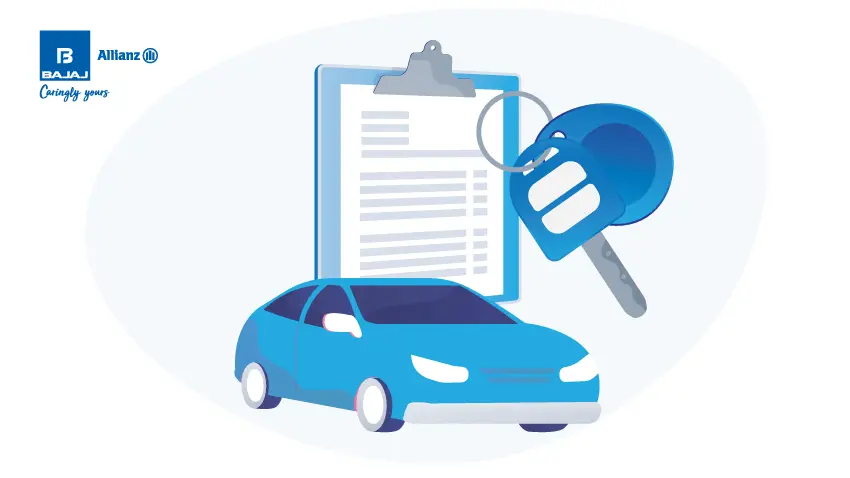Every time you step into your car or hit the road; you're potentially exposed to various risks on the journey. Road accidents can happen in the blink of an eye, often with devastating consequences. To protect yourself and others, it's crucial to follow road safety guidelines.
Let’s explore the do's and don'ts to avoid road accidents to minimise your risks of being involved in an accident.
The Dos for Road Safety
To understand the dos and don’ts of road safety, first you need to understand what you can do to ensure and promote road safety:
Obey Traffic Rules
Always follow traffic rules, including speed limits, stop signs, and traffic signals. These rules are in place for a reason – to keep everyone safe on the road.
Wear Seatbelts
Seatbelts save lives. Ensure that all passengers in your vehicle always wear their seatbelts, regardless of whether you're driving in the city or on the highway.
Maintain Safe Following Distance
Keep a safe distance from the vehicle in front of you. A good rule of thumb is the "three-second rule," allowing you enough time to react if the vehicle ahead suddenly stops or slows down.
Stay within Speed Limits
Speeding significantly increases the risk of accidents. Adhere to posted speed limits and adjust your speed according to road and weather conditions.
Use Turn Signals
Indicate your intentions to other drivers by using your turn signals when changing lanes or making turns. Proper signalling helps prevent sudden and unexpected manoeuvres.
Stay Alert and Focused
Avoid distractions like texting, talking on the phone, or eating while driving. Stay alert, keep both hands on the wheel, and concentrate on the road.
Observe Right of Way
Yield the right of way, when necessary, especially at intersections. Know the rules regarding who should proceed first and follow them diligently.
Regular Vehicle Maintenance
Ensure your vehicle is in good working condition by scheduling regular maintenance checks. This includes brakes, tires, lights, and other crucial components.
Use Headlights Appropriately
Use your headlights not only in low visibility conditions like fog or rain but also during twilight hours and at night to make your vehicle more visible to others.
The Don'ts for Road Safety
These are the things you should completely avoid doing when behind the wheel:
Don't Consume Intoxicating Substances
Never drive under the influence of alcohol, drugs, or any substances that impair your judgment and reflexes. Designate a sober driver or use alternative transportation.
Don't Tailgate
Tailgating, or driving too closely behind another vehicle, reduces reaction time and can lead to rear-end collisions. Maintain a safe following distance.
Don't Run Red Lights
Running red lights is a leading cause of intersection accidents. Always come to a complete stop at red lights and wait for the green signal.
Don't Overspeed
Excessive speeding is a major contributor to accidents. Avoid aggressive driving behaviours like racing or weaving through traffic.
Don't Overtake on Blind Curves
Overtaking on blind curves can be extremely dangerous. You may not see oncoming traffic until it's too late. Wait for clear visibility to pass safely.
Don't Engage in Road Rage
Avoid confrontations with other drivers, as road rage can escalate quickly. Stay calm and report aggressive driving behaviour to the authorities if necessary.
Don't Drive When Fatigued
Fatigue impairs your judgment and reaction time. If you're tired, pull over and take a break or switch drivers if possible.
The Role of Car Insurance In Road Safety
Car insurance is a fundamental aspect of road safety. It provides financial protection in case of accidents, damage to your vehicle, and liability for injuries or damages to others. Here's how the policy contributes to road safety:
1. Financial Protection
Car insurance ensures you're financially protected in the event of an accident. It covers repair or replacement costs for your vehicle and may also provide coverage for third-party damages. Claims are subject to terms and conditions set forth under motor insurance policy.*
2. Legal Requirement
Having the policy is a legal requirement. Driving without insurance can result in fines, license suspension, or legal consequences.
3. Personal Accident Cover
Personal accident cover, available as an add-on to the policy, provides compensation for injuries sustained in a road accident. It offers financial support for medical expenses, hospitalization, and even loss of income due to disability. Claims are subject to terms and conditions set forth under motor insurance policy.*
4. Peace of Mind
Knowing you have car insurance gives you peace of mind. You can focus on safe driving without the constant worry of potential financial burdens in case of an accident.
5. Assistance in Emergency Situations
Comprehensive policies include roadside assistance services. In case of breakdowns or emergencies, this feature ensures you receive prompt help, enhancing your safety on the road. Claims are subject to terms and conditions set forth under
motor insurance policy.*
Conclusion
Road safety is a shared responsibility involving adhering to the do's and avoiding the don'ts to prevent accidents. Car insurance plays a crucial role in providing financial protection and peace of mind while driving. By following road safety guidelines and ensuring adequate insurance coverage, you can minimize the risks of accidents and protect yourself and others on the road. Remember that safe driving habits not only save lives but also contribute to a safer and more enjoyable driving experience for everyone.
*Standard T&C Apply
Insurance is the subject matter of solicitation. For more details on benefits, exclusions, limitations, terms, and conditions, please read the sales brochure/policy wording carefully before concluding a sale.
 Service Chat: +91 75072 45858
Service Chat: +91 75072 45858


